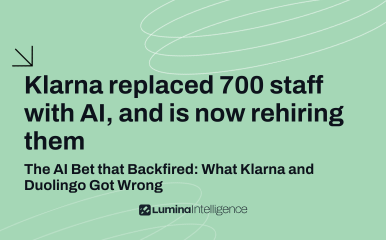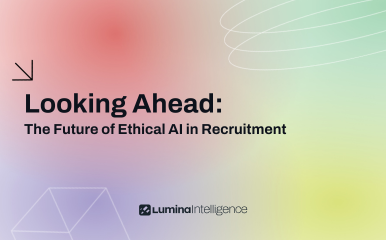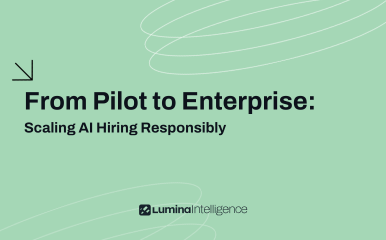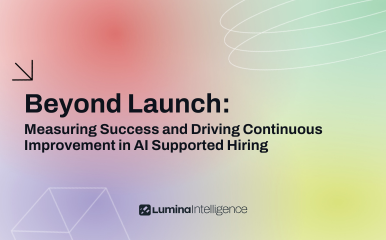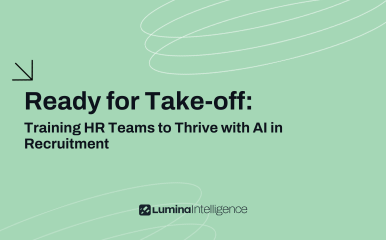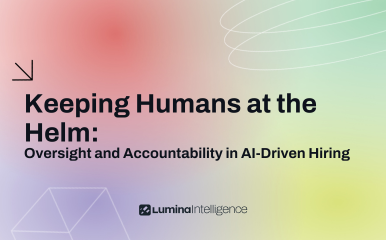During the first four weeks of this series, we explored the foundations of ethical AI in recruitment, the regulatory landscape, bias mitigation and privacy. This week, we turn to the candidate. A positive hiring journey influences offer-acceptance rates, employer-brand reputation and future talent pipelines. When applied thoughtfully, AI removes friction, adds clarity and leaves every applicant, whether successful or not, feeling respected.
Why Candidate Experience Matters
- Reputation
Review sites and social media amplify a single poor experience far beyond the original interaction. - Competition for Talent
Skilled professionals often juggle multiple offers. A smooth and engaging process helps your organisation stand out. - Future Hiring Efficiency
Candidates who feel valued are more likely to reapply or refer others, reducing time-to-hire in later campaigns.
Five Ways AI Elevates the Candidate Journey
Application and Screening
- Pain-point: Candidates submit a CV and then hear nothing for days.
- AI boost: Instant acknowledgement emails plus CV parsing that can suggest alternative roles if they are a closer fit.
Interview Scheduling
- Pain-point: Endless back-and-forth to find a slot.
- AI boost: Self-service schedulers that present real-time options and send reminders automatically.
Assessment
- Pain-point: Generic, one-size-fits-all tests that feel irrelevant.
- AI boost: Adaptive assessments that adjust difficulty or topic focus in response to each candidate’s answers.
Ongoing Communication
- Pain-point: Long silences create anxiety and disengagement.
- AI boost: Agents available around the clock to answer FAQs, plus automated nudges that prompt recruiters to send timely status updates.
Feedback
- Pain-point: A curt “thanks but no thanks”.
- AI boost: Personalised feedback summaries outlining strengths and suggested development areas, generated at scale in seconds.
Balancing Automation with the Human Touch
AI excels at speed, scale and consistency. Humans excel at empathy, nuance and persuasion. Combine the two deliberately:
- Transparent handover points
Tell candidates when they are interacting with automation and when a person steps in. - Empathy safeguards
Train chatbots with inclusive language guidelines and give recruiters prompt lists for sensitive conversations, such as salary negotiation or rejection calls. - Human-in-the-loop reviews
Before final decisions, a hiring manager should validate AI recommendations, ensuring context and culture fit are considered.
Practical Steps to Implement AI for Candidate Experience
- Map the candidate journey
List every touchpoint from application to offer. Highlight slow or frustrating moments that could benefit from automation. - Start with high-volume bottlenecks
Deploy AI where it saves the most recruiter time first. Completing initial screening assessments can be a great win here. - Prioritise accessibility
Ensure assessments are screen-reader friendly, allow keyboard navigation and provide voice-enabled chatbots so all candidates can participate. - Provide an opt-out
Give applicants the option to request human assistance for scheduling, assessments or queries. This respects individual comfort levels. - Collect continuous feedback
Embed a short survey after each stage, then use the data to fine-tune workflows and detect any emerging bias.
Illustrative Example: AI Scheduling at Pace
A retail chain hiring one thousand seasonal staff introduced an AI scheduling assistant linked to Outlook and Teams. Candidates selected interview slots on their phones, and reminders triggered automatic rescheduling if no confirmation arrived within twenty-four hours.
- Time to schedule fell from an average of 3.2 days to under 30 minutes.
- Candidate satisfaction (one-click emoji poll) rose from 72 to 91 out of 100.
- Recruiters reclaimed approximately forty-five staff-hours per hundred hires, which they reinvested in personalised final-stage interviews.
Measuring Success: Candidate Experience KPIs
- Application to first contact time: target same day responses
- Interview no-show rate: should decrease as scheduling friction disappears.
- Feedback satisfaction score: track via quick post-decision surveys and aim for steady improvement.
- Offer acceptance rate: a rising figure signals that the overall experience is compelling.
- Candidate Net Promoter Score (NPS): aim to improve this even among rejected applicants, and review results across demographic groups to ensure fairness.
Candidate experience is where ethical principles meet human emotion. By weaving AI into the journey while keeping people firmly in the loop, you can deliver faster decisions, richer feedback and a sense of respect that candidates remember long after the process ends.
At Lumina Intelligence, every workflow, from CV parsing to scheduling and assessment, is built with candidate-centred defaults: transparent notifications, opt-outs and privacy-first data handling. The result is a recruitment engine that meets business needs while leaving talent feeling valued.
What’s Next?
In Week 6 we will look at Human Oversight and Accountability, showing how to keep a responsible human hand on the tiller while letting AI handle the heavy lifting.
